HIT CHANNEL EXCLUSIVE INTERVIEW: February 2016. We had the honour to talk with a great drummer: Dave Getz. He is most known as the drummer of Big Brother and the Holding Company with and without Janis Joplin. He has also played with Country Joe and the Fish and Pendergrass. His solo album “Can’t Be the Only One” was released in 2010. Read below the very interesting things he told us:
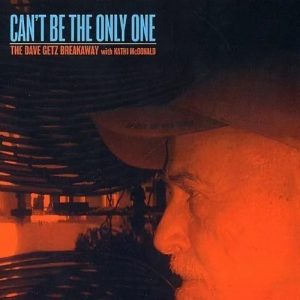 What are the current projects you are involved in?
What are the current projects you are involved in?
Ι am getting ready to put together something like a book. A book of stories about Big Brother and also about myself, drumming and art. A kind of a memoir. And also, I am going to record a CD with myself playing the balafon, a West African instrument. I am playing and I am composing things on it for about 5 years now. It called the balafon, it’s like a West African xylophone, but for the song we have like 5 notes. We use what we call a pentatonic scale. Anyway, that’s one of my projects. I do art and I have three shows in my art in the last three years. I am still playing with Big Brother. We play sometimes. We have some shows coming in May.
Are you satisfied with the feedback you received from fans and press for your solo album “Can’t Be the Only One” (2010)?
Not really. No. I’d like to get more recognition than I get. As an artist, I’d like to get more recognition because there are some great things on that. I don’t know if the whole CD is great, but there are a lot of great things on it.
What is the story of the song “Can’t Be the Only One” with lyrics written by Janis Joplin?
The story for that starts in 1968, maybe a month or six weeks before Janis left the band. We were in New York, we were rehearsing and I played something on the piano, like a riff. A blues riff. And Janis liked it and wrote some lyrics for that. We never used them because Janis left the band. But I had the lyrics that she wrote for many years. I was recording things and in about 2006-2007 and somewhere along the line, I discovered the lyrics and I started to make a whole song out of it. With the words she wrote, I created a melody. I did that and I sent it to Kathi McDonald. We had a long story with Kathi, she is not alive now. After Janis left, Kathi was in Big Brother in the early ‘70s. She lived in Seattle then, so she came down in San Francisco. I gave the lyrics to her and she wanted to sing on that, with lyrics by Janis and the melody that I wrote. I think she changed it a little bit. And then we recorded it with lyrics written by Janis about 40 years earlier. It’s a lot of time.
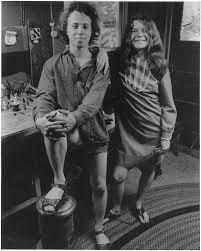 How important was the Monterey Pop Festival (1967) to the career of Big Brother and the Holding Company?
How important was the Monterey Pop Festival (1967) to the career of Big Brother and the Holding Company?
Yeah, that’s another interesting question because Monterey was the turning point. It was a great event for many bands to be discovered. Not a lot of people outside San Francisco knew Big Brother and the Holding Company. We were very successful at Monterey and after. After Monterey we signed a contract with Columbia Records and we did “Cheap Thrills”. We got out of the contract we had signed with a bad recording company, Mainstream Records. We got a lot of press and we earned some money, but on the other hand before Monterey Janis and the band, we had a harmonious relationship. We were like a family. From Monterey and on, it was when the pressure began and some friction occurred between Janis and the rest of the band.
Are you proud of the classic album status that “Cheap Thrills” (1968) has?
Yes, I think it’s a great album. It’s like a time capsule in 1968. It captured what happened at that time. It shows the spirit of the time.
Were you frustrated when some journalists criticized the musical abilities of the members of Big Brother and the Holding Company?
I mean, that’s exactly what I am saying. That thing really happened after Monterey when the band started to go national and played all over the United States. A lot of critics –some rock critics, not all of them- started saying that Janis was very good and the rest of the band wasn’t that good, and she needed something better or to start her own band. That put a lot of pressure and created a lot of friction. In my mind, it wasn’t a good time. It created a lot of problems.
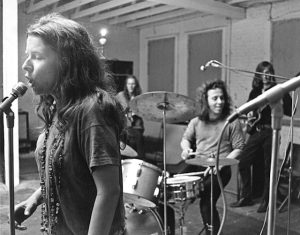 Did you expect Janis’ departure from the band in 1968?
Did you expect Janis’ departure from the band in 1968?
From Monterey and on, that started to seem inevitable. Everybody could see it coming. Everybody expected that she would leave the band some time soon. We stayed together a little more than a year after Monterey. We made a record, “Cheap Thrills”, and we did a lot of touring.
How important is improvisation to you?
Improvisation is very important to me. I come from jazz. I still play jazz. I have my own jazz quintet. For me, improvisation is something that every artist has to do. You create in the moment. Sometimes, you make a lot of mistakes but sometimes you can come up with an idea that you cannot come up when you play your instrument in a more programmed way.
What was it like to be a painter and a jazz musician in Communist Poland in the early ’60s?
It’s a whole book (laughs). Let me tell you something: When I was young, about 22-23 years old, I had a friend. We both were painters and we had started to see movies from Poland. Some good movies from Poland by Roman Polanski and Andrzej Wajda. A lot of great movies were coming from Poland, an Iron Curtain country, controlled by the Soviet Union. At the same time, there were a lot of writers, there was a lot of creativity there. I had this idea in my mind and with my friend, to go to Poland, because he was a real communist. He grew up in a communist family. We thought: “Hey, Poland would be like a communist, socialist country with artistic freedom”. We both had this false idea of what was going on and we decided to go on a boat. To get into a ship and leave the country. Of course, we couldn’t make that happen.
Then, a couple of years later, I was applying for a Fulbright fellowship in the United States. After the Second World War there were many countries in Europe that owed money to the USA, a congressman named Fulbright came up with a plan that American students and artists would go to study and work in these countries and these European countries would pay back some of that money by hosting these students and artists. So, each year all over the USA there were competitions in Music, Art, writing, science, etc and the winners would get to go and study or work in the European country that they chose. I chose to go to Krakow in Poland because I believed that there was a cultural revolution happening there, which there was but it was much, much harder than I thought it would be to live there and to paint, so I eventually found myself playing music more than painting and I would say that at that time the young people in Poland were very hungry for Jazz and all western cultural things, including the Beatles. In 1965 when I was in Poland the movie “A Hard Day’s Night” was shown and it had a profound effect on everyone there.
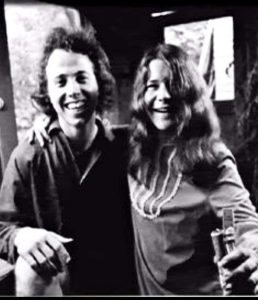 When I came back to the United States from Poland, I started to appreciate the freedom and the democracy. I had that idealist and utopian idea about Communist countries. I was very hurt to see this, but I did. They gave me a studio and first it was just me and the studio. Then, they put two other people. Then, they put five other people in the studio. Then, they put twenty other people in the studio. It was so crowded that I had to go out of the studio and I started to go to the jazz clubs in Krakow, and I started to sit there with bands. Then, I started to play in jazz bands because there were no good drummers in Poland. There were a lot of great piano players, a lot of very good string players but not a lot of good drummers. So, I started to play in three different jazz bands, travelling around Poland, making a lot of money playing jazz. So, it didn’t turn out to be as I dreamt it. It was very hard to live there but everybody loved jazz. There were a lot of great musicians there, I played a lot of jazz, I met a lot of musicians and a met a lot of great people. I made great friends. Now, Poland is a completely different country. It’s a big market. I haven’t been back there.
When I came back to the United States from Poland, I started to appreciate the freedom and the democracy. I had that idealist and utopian idea about Communist countries. I was very hurt to see this, but I did. They gave me a studio and first it was just me and the studio. Then, they put two other people. Then, they put five other people in the studio. Then, they put twenty other people in the studio. It was so crowded that I had to go out of the studio and I started to go to the jazz clubs in Krakow, and I started to sit there with bands. Then, I started to play in jazz bands because there were no good drummers in Poland. There were a lot of great piano players, a lot of very good string players but not a lot of good drummers. So, I started to play in three different jazz bands, travelling around Poland, making a lot of money playing jazz. So, it didn’t turn out to be as I dreamt it. It was very hard to live there but everybody loved jazz. There were a lot of great musicians there, I played a lot of jazz, I met a lot of musicians and a met a lot of great people. I made great friends. Now, Poland is a completely different country. It’s a big market. I haven’t been back there.
Why you played with Ronnie Montrose in Pendergrass for so short period of time?
Ronnie Montrose wasn’t to be in that band. He had bigger ideas for himself. He played in that band for a couple of weeks. We played a gig at some club and it was recorded and he was a great guitar player. He wanted to have his own band, you know, and he recorded one show with us. I think we played one other gig with him.
You got to know Jerry Garcia. What was he like?
Jerry Garcia was a very nice person. I liked him very much, indeed but I didn’t know him really close. It’s not a very good question to ask me. You should ask someone who came around the Grateful Dead and he was more like a Deadhead. I was never like a Deadhead. I liked Jerry and I think he was a good guy.
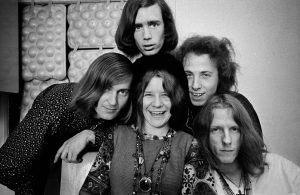 Is it a coincidence that all the San Francisco bands had very strange names (Big Brother and the Holding Company, Country Joe and the Fish, Jefferson Airplane, Grateful Dead)?
Is it a coincidence that all the San Francisco bands had very strange names (Big Brother and the Holding Company, Country Joe and the Fish, Jefferson Airplane, Grateful Dead)?
Yeah, yeah, I know. I don’t know why they had these strange names. Other bands in the United States had also funny names like Buffalo Springfield which was from L.A and the Strawberry Alarm Clock which was from L.A, too. There were a lot of bands from L.A that had crazy names. It wasn’t only in San Francisco, it was a thing of the time. The spirit was the same all over the world at the time, I think.
Tony Williams came out from Boston and joined Miles Davis when he was 17 years old. Are there those kinds of opportunities today?
There are always opportunities. Do you know who Joey Alexander is? He is a pianist. He is 12 years old. He’s an unbelievable jazz pianist. Music is always the same. Music has been always about child prodigies who have high level of musical intelligence when they are very young, even 9 or 10. Mozart wrote his first symphony when he was 9 years old. It has always been like that. There were always child prodigies and incredible young musicians who became successful and changed the music. Tony Williams is a great example. There is a kid now, as I said earlier, whose name is Joey Alexander, a piano player who is unbelievable.
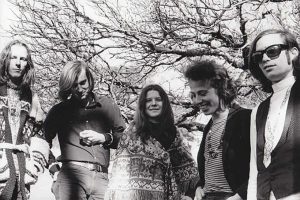 Do you remember the two shows you played in Athens in 2009?
Do you remember the two shows you played in Athens in 2009?
Yes, I do. I remember one very much. One was at a club which was like a basement and had a lot of posters on the wall. I remember that one and I remember that the drums were sitting like behind the stage, it was like a separate room.
Had you ever met Timothy Leary?
I met Timothy Leary, yes, but it’s another question that you really should ask somebody who knows more about that. I met Timothy Leary a couple of times. Big Brother in the ‘90s were playing a show in L.A. It was ’94 or ’95 at a club called the Troubadour and Timothy Leary was there and I sat across him in backstage, in a musician’s room upstairs and we talked and we had a conversation. I don’t really know much to say about him, but he was very influential to people who take LSD.
A huge “THANK YOU” to Mr Dave Getz for his time.
Official Dave Getz website: http://davegetz.com
Official Big Brother and the Holding Company website: http://www.bbhc.com
Official Big Brother and the Holding Company Facebook page: https://www.facebook.com/BBHC2009

